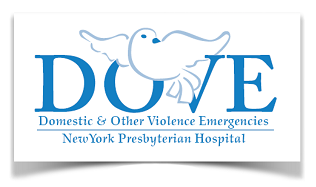During quarantine, CUPS members found many different ways to reach out and connect with their communities. We’ve heard powerful stories of postdocs volunteering and reaching out to their communities during a time of need.
As we prepare to celebrate the Thanksgiving holiday and take stock of everything that we’re grateful for during these uncertain times, CUPS would like to show gratitude to our hardworking postdocs. Every day this week, we will highlight a different postdoc and how they’ve lifted up their communities.
We continue our Outreach Highlight series with Azzurra Cottarelli, a postdoc in the Neurology Department. Azzurra shares her experience working survivors of sexual assault and domestic violence through Domestic & Other Violence Emergencies at New York Presbyterian Hospital, and tells a moving story of how being a DOVE advocate has inspired her as a dance choreographer and a new mother.

Azzurra Cottarelli
“I work on the Blood-Brain Barrier, the brain’s ultra specialized vascular system, trying to figure out how it is disrupted after an ischemic stroke and what can we do to fix it. In my free time I’m a dancer/choreographer and, recently, a mom.
I felt that something was missing. I was always busy with work or some other activity, but it felt like none of that could make the picture of who I was as a person complete. Then, the DOVE flier appeared.
DOVE (Domestic and Other Violence Emergencies) advocates are called when a survivor of sexual assault and/or domestic violence arrives in the ER. Our role is to provide emotional support to the survivor and mediate their interaction with the medical team, and the police, etc. We hope that in doing so, we can alleviate the burden of the traumatic experience that the survivor is living, and we can address them to specific support resources (shelters, counseling, legal assistance, etc.).
As advocates, our role is to be there for the survivor and to believe them. Our mantra is that “only the survivor is expert on her/his own life”. When we enter the room, we leave outside all our opinions and beliefs and we focus only on what is best for the survivor, even if that means doing something differently from what we would do. For example, sometimes it is safer for a survivor to go back home from their abuser. We may think it’s the wrong choice, but the survivor may know that will save his/her life. It takes a lot of practice to learn not to judge someone else’s decision only based on the information we have, but once you gain that skill you will find yourself practicing that in your everyday life. Also, it takes a lot of practice to learn to let go of the stories you hear once you go back home, but that’s also an invaluable life skill.
Last winter I choreographed a dance for the showcase of Dance Haven, CUMC dance club, inspired by my experience as an advocate. I had the chance to merge my two non-science-related passions, and my dancers became so involved in this cause that I decided to make a donation to Safe Horizon. I’m also involved in the training of the new classes of advocates. Although the advocacy program had to stop during the peak of the pandemic for safety reasons, we will be resuming remotely. I strongly believe that you do not prevent sexual assault and domestic violence by telling women to be more careful, but by raising better men. I now feel that I have one more reason to keep being an advocate: my 3 month old baby, Christopher. I hope my efforts will help him grow up to be a great man.”
Would you like to be featured in the next Outreach Highlight? Share your experience with CUPS by filling out the outreach and volunteering survey.